Is Belarus a Russia-Occupied Territory or Russian Ally?
By Pavlo Troian, Marshall Center alumni scholar
What is the extent of Belarus’ participation in Russian aggression against Ukraine? It was from Belarus that Russian troops invaded the Kyiv, Chernihiv and Zhytomyr regions of Ukraine in February 2022, reaching Bucha, where they committed an infamous massacre. It was from Belarus that Russian troops entered, shelled and captured the Chernobyl power plant — with its spent nuclear fuel storage facilities and its new confinement shell, which prevents radiation leaking from the melted-down reactor — thereby risking nuclear contamination.
From the very beginning of Russia’s full-scale war against Ukraine, there have been missile attacks from Belarusian territory on Ukraine. The U.S. Department of Defense confirmed this as early as March 3, 2022. On February 27, 2022, even Belarusian President Alexander Lukashenko admitted to such missile strikes. According to some reports, missiles also were fired at Ukraine from Belarus on Ukrainian Independence Day in August 2022, a few days after Lukashenko had cynically congratulated the Ukrainian people on the holiday, wishing “A peaceful sky above their heads.”
Belarus also provided and continues to provide numerous substantial forms of support for Russia’s war, as well as provision of logistics and military infrastructure. After the invasion began, a significant number of Russian soldiers wounded in Ukraine were treated in Belarusian military and civilian hospitals, as confirmed by Lukashenko. Belarusian service members and civilians were also involved in organizing the transportation and burial of Russian soldiers killed in Ukraine. Russian-mobilized troops receive training at Belarusian training grounds. Belarus also apparently supplies ammunition, missiles and military equipment to the Russian army, shares intelligence, maintains and repairs damaged Russian military vehicles and aircraft, and provides various other forms of support.
However, as of September 2023, there had been no clear evidence confirming the presence of regular Belarusian army units in Ukraine. In addition, there is no information indicating that Belarusian troops have shelled Ukrainian territory.
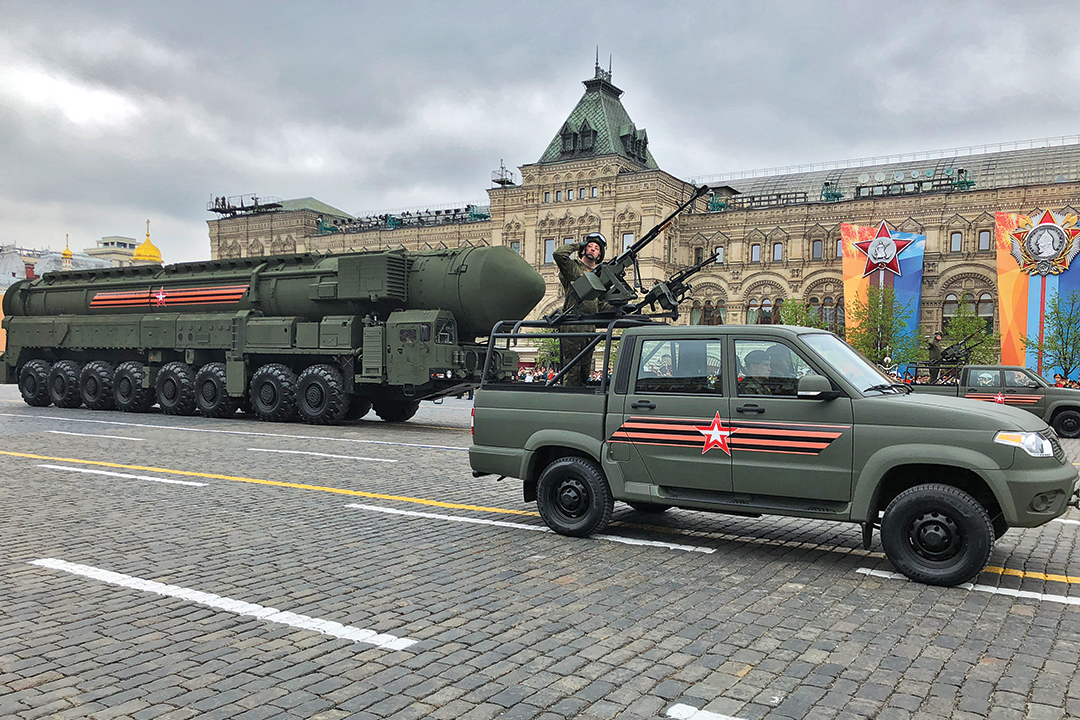
Legal Understanding?
Given what is known, is there legal evidence of Belarus’ complicity in Russia’s aggressive war against Ukraine? In fact, international humanitarian law has no clear definition of “complicity in aggression.” Dozens of research papers have been written on this topic in which the authors discuss legal and political aspects and provide various definitions of this term. One can find more on this topic in such books as “Complicity and the Law of State Responsibility,” by Helmut Philip Aust, “Complicity in International Law,” by Miles Jackson, or “Complicity and its Limits in the Law of International Responsibility,” by Vladyslav Lanovoy.
Because the purpose of this article is not to delve into the subtleties of international humanitarian law, we will instead look at some definitions from international legal documents regarding what constitutes complicity in aggression.
On December 14, 1974, the United Nations General Assembly adopted Resolution 3314 (XXIX) as a nonbinding recommendation to the U.N. Security Council on how to define the crime of aggression. Article 3 of the resolution contains a list of acts that qualify as aggression. Paragraph (f) of Article 3 states: “The action of a State in allowing its territory, which it has placed at the disposal of another State, to be used by that other State for perpetrating an act of aggression against a third State.” This clearly implicates Belarus, which openly offered its territory to Russia to be used for the invasion of Ukraine.
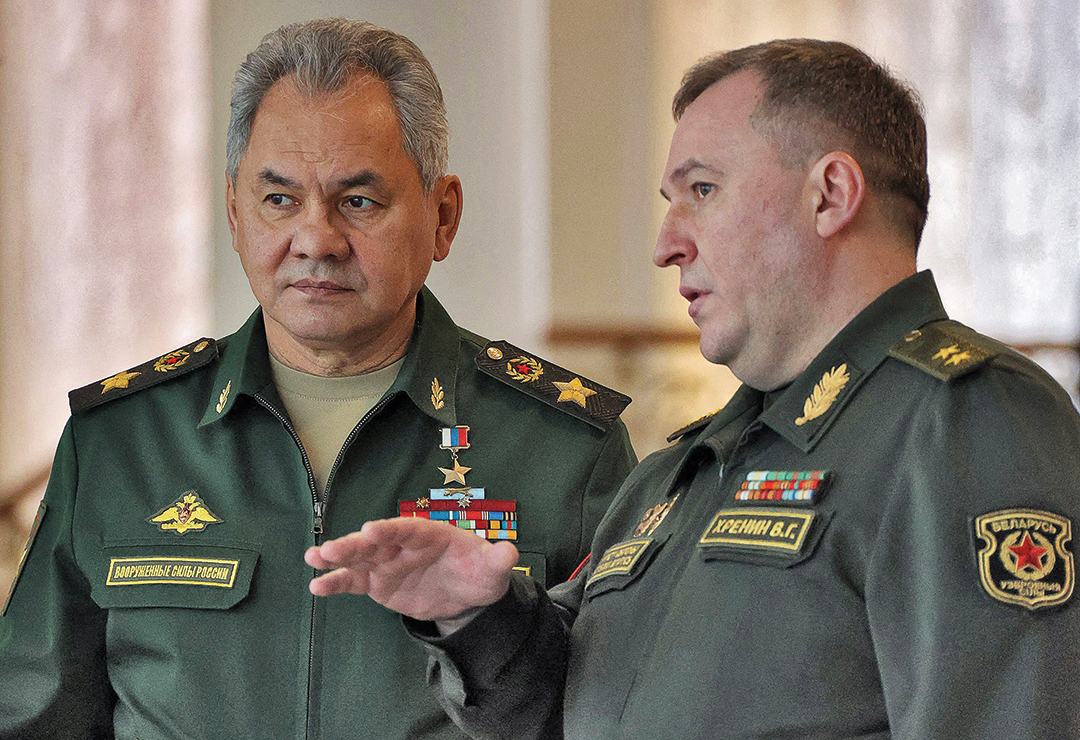
In addition, in 2001 the U.N. International Law Commission adopted the Articles on the Responsibility of States for Internationally Wrongful Acts (ARSIWA). The U.N. General Assembly commended ARSIWA to governments later that year. The General Assembly has yet to formally adopt ARSIWA, however, according to Chatham House’s Harriet Moynihan, it instead commends them to the attention of governments on a regular basis.
ARSIWA includes Article 16 on the responsibility of states that aid or assist internationally unlawful acts by other states, which declares: “A State which aids or assists another State in the commission of an internationally wrongful act by the latter is internationally responsible for doing so if: (a) that State does so with knowledge of the circumstances of the internationally wrongful act; and (b) the act would be internationally wrongful if committed by that State.” This is also applicable to Belarus, as Minsk has publicly acknowledged its awareness of Moscow’s intentions to attack Ukraine.
It can also be stipulated that Belarus violates Article 2(4) of the U.N. Charter, which requires member states to refrain in their international relations from the threat or use of force against the territorial integrity or political independence of any other state; as well as violating Article 41 of ARSIWA, which requires states to refrain from providing assistance to violations of peremptory norms of international law, such as the prohibition of aggression.
Some experts may note that certain forms of Belarus’ support for Russian aggression against Ukraine may not be considered as complicity in aggression. For example, Siarhei Bohdan, from the Friedrich Meinecke Institute of History at the Freie Universität Berlin, points out that from the perspective of international humanitarian law, to aid injured Russian soldiers does not equate to complicity in the war. That may be so, in that particular case. However, Belarus has been supporting Russia’s war in so many ways and over such a long period of time, that it is difficult to argue against Minsk’s complicity in the war as a whole.
Perhaps it is the variety of Belarus’ forms of support for Russia’s war against Ukraine that has caused several international organizations, such as the European Union and the Council of Europe, to classify it as an accomplice of aggression. The EU, in particular, linked its adoption in 2022 of several packages of sectoral sanctions against Minsk with Belarusian complicity in the war. The United States also imposed sanctions for Belarus’ participation in Russian aggression against Ukraine.
However, the primary international legal document confirming Belarus’ complicity is U.N. General Assembly Resolution ES-11/1, adopted on March 2, 2022. In the resolution, the U.N. General Assembly “deplores the involvement of Belarus in this unlawful use of force against Ukraine and calls upon it to abide by its international obligations.” This resolution was supported by 141 countries, including practically all the countries of Europe and most of the states of Asia, Africa, the Pacific Islands and the Americas. Only Belarus, Russia, North Korea, Eritrea and Syria voted against. The passing of this resolution certainly refutes the argument that only the West has condemned Russia’s war of aggression, and it acknowledges the complicity of Belarus in this war.
Of the well-established international organizations, only the Organization for Security and Co-operation in Europe (OSCE), in a report dated April 12, 2022, states that Belarus is not a participant in the war. Accordingly, relevant quotes from this OSCE report were widely circulated by the Belarusian state media. However, in later reports, the OSCE states that Russia’s war against Ukraine is “supported by Belarus.”
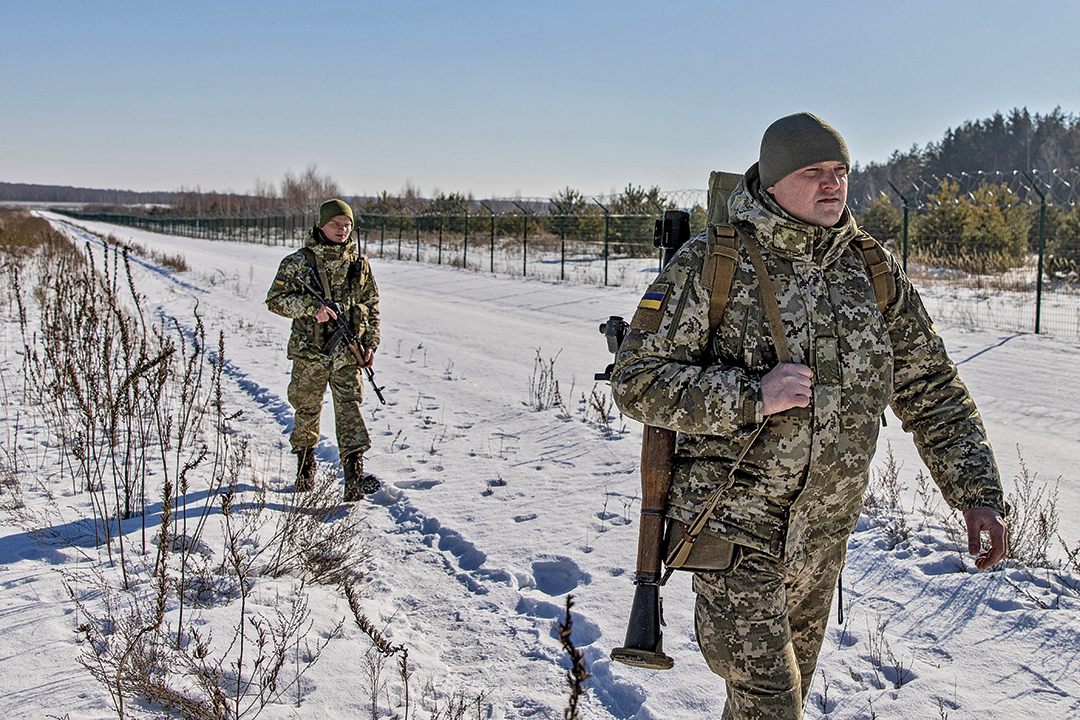
Does Russia fully occupy Belarus?
In March 2022, Belarusian opposition leader Pavel Latushka called for Belarus to be recognized as under temporary Russian occupation. In May 2023, opposition leader Sviatlana Tsikhanouskaya repeated this call, requesting that the U.N. make such a determination and continue to tighten sanctions on the Lukashenka regime. A similar resolution has been proposed in Ukraine’s parliament, the Verkhovna Rada. Moreover, European Parliament Resolution P9_TA(2022)0418, which was adopted on November 24, 2022, also states that Belarus “should be recognized as an occupied or de facto occupied territory by Russia.” Some Belarusian opposition politicians, such as Zyanon Paznyak, suggest that not only is their country occupied, but also that the Russian Federation may go so far as to annex it.
There is a separate section of international humanitarian law called “occupation law.” It defines the rights and obligations of the occupying party and largely focuses on ensuring the rights and freedoms of the inhabitants of a territory that is under occupation. At the same time, when it comes to defining what actually constitutes an occupation, international organizations and courts are still largely guided by the 1907 Hague Regulations (HR) concerning the Laws and Customs of War on Land. Article 42 of the HR states that a “territory is considered occupied when it is actually placed under the authority of the hostile army. The occupation extends only to the territory where such authority has been established and can be exercised.” As we can see in the HR, an occupation is directly linked to an army and hostilities. International organizations also often refer to the Fourth Geneva Convention of 1949. In this treaty, the connection between occupation and war is attenuated. Article 2 of the Convention provides that the convention “shall apply even to an occupation that meets with no armed resistance.”
At the same time, studies by many acclaimed scholars and practicing lawyers clearly demonstrate that in most cases, actual occupying powers deny they are engaged in an occupation and often do not create formal occupation administrations. Instead, they tend to use proxies, establish puppet states or governments, or directly annex parts (or all) of the territory of the occupied state. In particular, according to Cambridge University international law professor Eyal Benvenisti in his book “The International Law of Occupation,” occupiers will rarely acknowledge the status of the occupant because such an acknowledgment limits their future actions and claims regarding the ultimate status of the territory.
So, what is an occupation? International humanitarian law in this matter cannot rely on the 1907 HR, a document more than a century old that concentrated more on the rights of monarchs than ordinary citizens. Because there is no single, universally accepted definition of this term, let us take a look at two definitions offered by established researchers.
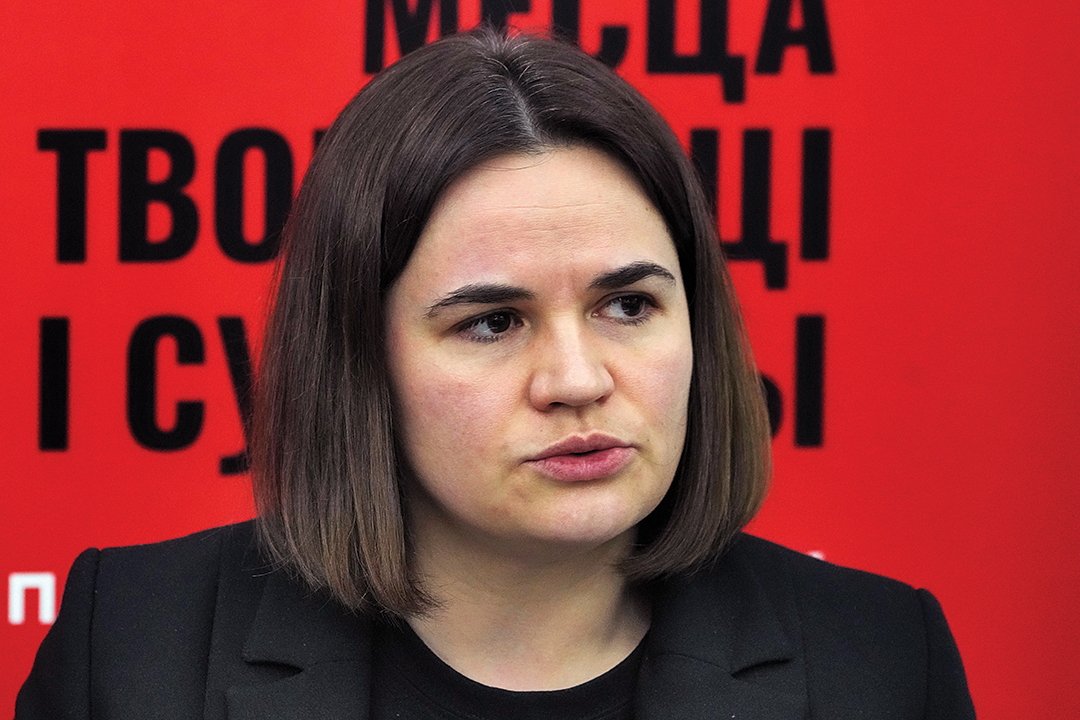
David M. Edelstein, a professor of international affairs at Georgetown University in Washington, proposes in his book “Occupational Hazards: Success and Failure in Military Occupation,” that “occupation is the temporary control of a territory by another state that claims no right to permanent sovereign control over that territory. An occupying power must intend at the onset of the occupation to vacate the occupied territory and return control to an indigenous government. A precise date for evacuation need not be specified, but the occupying power’s intention must not be to stay indefinitely.”
However, in his book, Benvenisti defines occupation as “the effective control of a power (be it one or more states or an international organization, such as the United Nations) over a territory to which that power has no sovereign title, without the volition of the sovereign of that territory.”
Benvenisti’s definition is more apt, as it does not focus on the intent or lack of intent of the occupier to return control of the territory to the domestic government (this may vary depending on the political and military situation). However, neither definition implies mandatory military control by the occupier of a particular territory or a precursory military conflict, but focuses instead on effective control. In this regard, one can also give an example of the Eritrea-Ethiopia Claims Commission, established with the mediation of the U.N. The Commission claimed that “the international law of occupation does not suggest that ‘only territory the title to which is clear and uncontested can be occupied territory.’ ”
There have been numerous examples in history of occupations without armed resistance or preceding military conflict, such as the occupations by Nazi Germany of Czechoslovakia in 1939 and of Denmark in 1940. Occupation can also come as a result of an armistice — the occupation of the Rhineland by Belgium, France and the United Kingdom, which lasted 12 years from 1918 to 1930, was the result of a truce — or as a result of a peace agreement or the surrender of one of the parties to war, such as the occupations of Germany and Japan after World War II. According to the faulty premise of Russian President Vladimir Putin, Germany is still occupied by the United States because U.S. troops have been stationed there since World War II. However, as just explained, occupation is not determined solely by the presence or absence of foreign troops on the territory of a state, but also by who has political authority and control over the state. In the case of Germany, the U.S. military handed over control to democratically elected German government authorities in its zone of occupation as early as 1949.
Returning to Belarus’ situation, none of the above cases is 100% analogous. Belarus was not in an armed conflict with Russia and was not invaded, nor did its government yield control because of an enemy ultimatum. Russian troops are in Belarus with the approval the Belarusian government. However, the legitimacy of the Belarusian authorities — contested by much of the citizenry after the presidential election of 2020 (labeled as neither free nor fair by international observers) and the following protests — when the government arrested opposition leaders and more than 30,000 protesters — is a different matter.
Thus, can Belarus be considered occupied or even annexed as the Belarusian opposition has suggested? As for annexation, definitely not, because this term implies a formal accession to another state. This has not happened, at least not yet. The question of a de facto occupation is more complicated. There is no need for an armed conflict, or even direct military control, to recognize a country as occupied. There simply needs to be effective control of the territory and state authority of Belarus by Russia.
Russia certainly has significant influence on Belarus in the economic, political, military and other spheres. However, it cannot be said that Moscow completely controls Belarus. The country retains its own authorities, including the police and the army. Belarus is still represented in the international arena, including major international organizations. In international relations, the policies of the Belarusian authorities, although often following closely those of Moscow, still differ in a number of areas. For international authorities to recognize Belarus as an occupied country, at this stage, would be a political act rather than an indisputable fact under international humanitarian law.
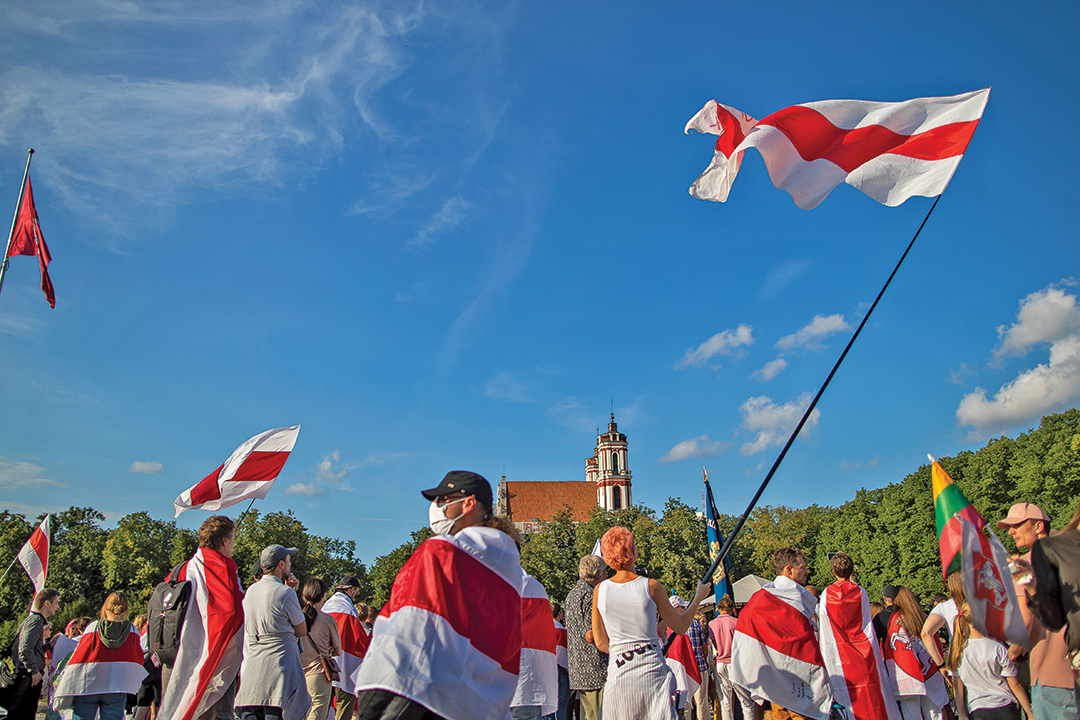
Conclusions
The current absence of clear evidence that the Belarusian military has conducted operations on or into the territory of Ukraine and the unclear definition of “complicity” in aggression in international law complicate efforts to define Belarus’ role in Russia’s war against Ukraine.
Perhaps, based on this and also political reasons, many nations are in no hurry to charge Belarus with complicity in Russia’s aggression. Nevertheless, Minsk’s provision of comprehensive support to the Kremlin is objectively interpreted by many authoritative international organizations, as well as Western states, as complicity in Russian aggression against Ukraine. The clear evidence of complicity has already been explicitly documented in U.N. General Assembly Resolution ES-11/1, which was approved by a vast majority of the countries represented in the General Assembly.
Belarus’ role in the war is confirmed by the intention to create a special tribunal to legally prosecute the crime of aggression against Ukraine, which if created, would probably target Belarus in addition to Russia. On January 19 and 26, 2023, resolutions on this issue, in which Russia and Belarus are mentioned, were adopted by the European Parliament and the Parliamentary Assembly of the Council of Europe, respectively.
As for the occupation of Belarus by Russia, there is insufficient legal and factual evidence to make such a determination and, most importantly, there is no practical reason to do so today, as it will deprive Minsk of the remnants of subjectivity and room for maneuver. After all, if a country is occupied, all diplomatic missions should be closed and diplomatic relations conducted only with the occupier, i.e., Russia. In any case, Moscow and Minsk would obviously not recognize such a determination. Moreover, such a determination at this stage may provide Moscow with additional arguments for the practical implementation of the actual occupation and annexation of Belarus.
Recently, Belarus has attracted additional attention because of Russia’s announced deployment of nuclear weapons on its territory. At the same time, it is obvious that Russia will not give control over these weapons to the Belarusian government. Some analysts suggest that Putin plans to extort the West with the possibility of a nuclear strike from Belarus. Nobody wants to believe that such a plan would ever be implemented. However, even the possibility of a nuclear strike from Belarusian territory could intensify discussions about recognizing Belarus as an occupied country.
The situation may change if Russia is shown to have obvious interference in Belarusian affairs, such as deposing Lukashenko and installing a puppet leader who would announce the unification of Belarus and the Russian Federation. Another example might be if the Belarusian army were used in a direct attack on Ukraine while Lukashenko admits that he is not fully in command. In these scenarios, it would be more in accordance with international norms for Belarus to be recognized as an occupied nation and would provide opportunities to address the liberation of the country.


Comments are closed.